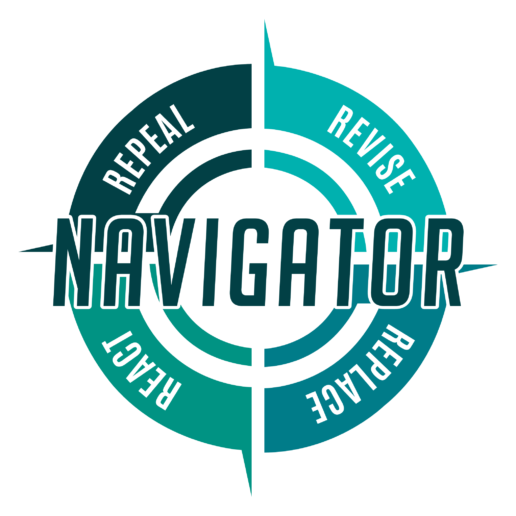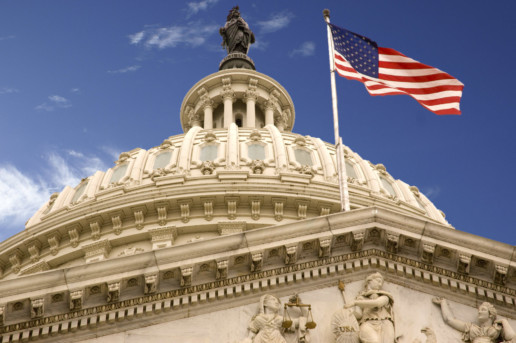Under the ACA:
Proposed under the AHCA:
- Expansion: Expand Medicaid eligibility to all non-elderly adults with incomes up to 138% FPL based on modified adjusted gross income at state option. As under current law undocumented immigrants are not eligible for Medicaid. Provide newly eligible adults with a benefit package that meets the essential health benefits. To finance the eligibility expansion, states will receive 100% federal funding for 2014 through 2016, 95% federal financing in 2017, 94% federal financing in 2018, 93% federal financing in 2019, and 90% federal financing for 2020 and subsequent years.
- Children’s Health Insurance Program (CHIP): Require states to maintain current income eligibility levels for children in Medicaid and the Children’s Health Insurance Program (CHIP) until 2019 and extend funding for CHIP through 2015. Beginning in 2015, increase CHIP match rate by 23 percentage points up to a cap of 100%.
- Other program changes: Increase the Medicaid drug rebate percentage for brand name and non-innovator, multiple source drugs and extend the drug rebate to Medicaid managed care plans.
- Reduce aggregate Medicaid DSH allotments. Require the Secretary to develop a methodology to distribute the DSH reductions based on uninsured rates.
- Create demonstration projects to test health home models and new payment methodologies.
- Provide states with new options for offering home and community-based services
- Coverage enhancements: Gradually close the Medicare Part D coverage gap (“donut hole”) by 2020
- Prohibit Medicare Advantage plans from imposing higher cost-sharing requirements for some Medicare covered benefits than is required under traditional Medicare.
- Eliminate cost-sharing for Medicare covered preventive services that are recommended (rated A or B) by the U.S. Preventive Services Task Force and waive the Medicare deductible for colorectal cancer screening tests.
- Changes to provider payments: Reduce payments for Medicare Advantage (MA) plans; phase-in adjustments to plan payments for coding practices and provide the Secretary the authority to further adjust plan payments for coding intensity.
- Reduce payment updates for hospitals and other Medicare providers.
- Reduce Medicare Disproportionate Share Hospital (DSH) payments.
- Other program changes: Increase Medicare premiums (Parts B and D) for higher income beneficiaries (those with incomes above $85,000/individual and $170,000/couple).
- Establish an Independent Payment Advisory Board to recommend strategies to reduce the per capita rate of growth in Medicare spending if spending exceeds a target growth rate.
- Establish various quality, payment and delivery system changes, including a new Center for Medicare and Medicaid Innovation to test, evaluate, and expand methods to control costs and promote quality of care.
Source: kff.org
- Financing; Codify that the Medicaid expansion is a state option as of January 1, 2020 consisting of “expansion enrollees” and “grandfathered enrollees”; eliminate option to extend coverage to adults above 133% FPL effective December 31, 2017; limit the enhanced match for the Medicaid expansion to 133% FPL to states that adopted expansion as of March 1, 2017, and sunset enhanced FMAP for those states as of January 1, 2020 (except for grandfathered enrollees who were enrolled through the Medicaid expansion as of December 31, 2019 and who do not have a break in eligibility of more than one month).
- Convert federal Medicaid financing to a per capita cap beginning in FY 2020.
- Decrease per capita cap target medical assistance expenditures by the amount of certain expenditures required by political subdivisions of certain states that are unreimbursed by the state beginning in FY 2020 – as written appears to apply only to New York.
- Add state option to elect Medicaid block grant instead of per capita cap for certain populations for a period of 10 fiscal years, beginning in FY 2020 – if option is not extended at the end of 10 FY period, per capita cap provisions apply.
- Provide 100% FMAP for MMIS and eligibility systems for FY 2018 and FY 2019 and increase other administrative matching to 60% for expenses related to implementing new data requirements.
- Repeal Medicaid DSH cuts for FY2020 – FY2025; exempt non-expansion states from DSH cuts for FY2018 – FY 2019
- Provide $10 billion over 5 years (FY2018 – FY 2022) to non-expansion states for safety-net funding (applies to states not adopting the expansion by July 1 of the previous year). Allotments based on the number of individuals in the State with income below 138% of FPL in 2015 relative to the total number of individuals with income below 138% of FPL for all the non-expansion States in 2015. Payments 100% funded by the federal government in FY 2018-2021 and 95% in FY 2022. Payments to providers may not exceed providers’ costs in providing health care services to Summary of the American Health Care Act 7 Medicaid and uninsured patients. States receiving these funds in a year in which they also adopt expansion shall no longer be eligible to receive these funds in any subsequent year.
- Other Changes: Create state option to require work as a condition of eligibility for nondisabled, nonelderly, nonpregnant Medicaid enrollees as of October 1, 2017, by participating in work activities as defined in the TANF program2 for a period of time as determined by the state and as directed and administered by the state.
- Repeal the essential health benefits requirement for those receiving alternative benefit packages, including the expansion group, as of December 31, 2019.
- Repeal increase in Medicaid eligibility to 138% FPL for children ages 6-19 as of December 31, 2019. The minimum federal income eligibility limit for these children will revert to 100% FPL.
- Repeal hospital presumptive eligibility provisions and presumptive eligibility for expansion adults, effective January 1, 2020
- Repeal enhanced FMAP for the Community First Choice Option to provide attendant care services effective January 1, 2020
- Prohibit federal Medicaid funding for Planned Parenthood for one year, effective upon date of enactment
- Require states to consider lottery winnings (and other lump sum payments including gambling winnings and liquid assets from an estate) as income over a period of months in determining Medicaid ineligibility for individual and spouse beginning, January 1, 2020. Secretary can establish hardship criteria and state can intercept lottery winnings for Medicaid recoupment.
- Eliminate 3-month retroactive coverage requirement (start eligibility “in or after” the month of application) beginning October 1, 2017.
- Require states to limit home equity to federal minimum (removes the option to expand the limit from $500,000 to $750,000 (adjusted for CPI), effective six months after the bill is enacted or longer if states must pass legislation to change.
- Require eligibility redeterminations every 6 months for expansion enrollees beginning October 1, 2017. Expands civil monetary penalties up to $20,000 per individual for intentionally claiming Medicaid matching funds for an individual not eligible for expansion. Provide a temporary (10/1/17 through 12/31/19) five percentage point FMAP increase for expenditures directly related to complying with this provision
- Revenues: Repeal the HI payroll tax on high earners, beginning after December 31, 2022
- Repeal the annual fee paid by branded prescription drug manufacturers, beginning after December 31, 2016
- Reinstate the tax deduction for employers who receive Part D retiree drug subsidy (RDS) payments to provide creditable prescription drug coverage to Medicare beneficiaries, beginning after December 31, 2016.
- Coverage enhancements: ACA benefit enhancements (no-cost preventive benefits; phased-in coverage in the Part D coverage gap) are not changed
- Reductions to provider and plan payments: ACA reductions to Medicare provider payments and Medicare Advantage payments are not changed
- Other ACA provisions related to Medicare are not changed, including: Increase Medicare premiums (Parts B and D) for higher income beneficiaries (those with incomes above $85,000/individual and $170,000/couple).
- Authorize an Independent Payment Advisory Board to recommend ways to reduce Medicare spending if the rate of growth in Medicare spending exceeds a target growth rate.
- Establish various quality, payment and delivery system changes, including a new Center for Medicare and Medicaid Innovation to test, evaluate, and expand methods to control costs and promote quality of care; Medicare Shared Savings Accountable Care Organizations; and penalty programs for hospital readmissions and hospital acquired conditions.
Source: kff.org









